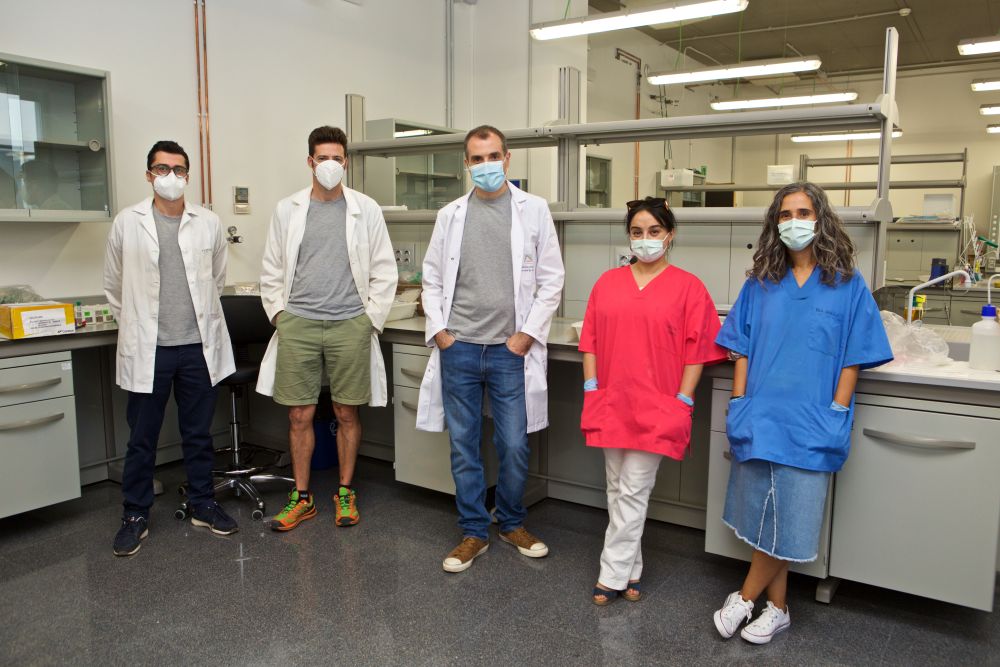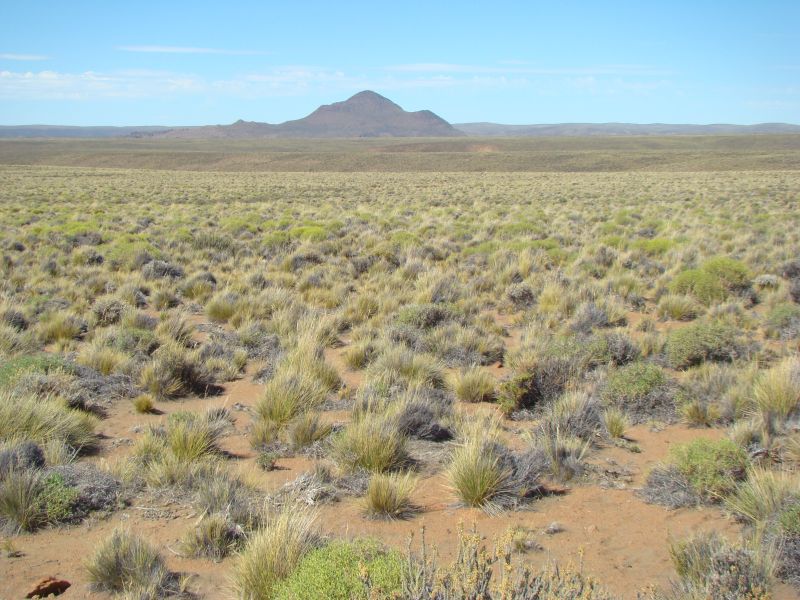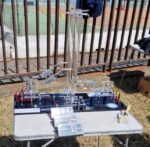Image : One of the areas investigated in BIODESERT: Argentinian Patagonia. Photo by Juan José Gaitán, INTA (Argentina)
“Biological feedbacks and ecosystem resilience under global change: a new perspective on dryland desertification” (BIODESERT) is a research project funded by the European Research Council (ERC) under the European Community’s Horizon 2020 Programme (ERC Grant agreement). This project was awarded to Prof. Fernando T. Maestre in the 2014 Consolidator Grant call, and it is being carried out at the Dryland Ecology and Global Change Lab of the University of Alicante.
Changes in climate and land use (e.g., increased grazing pressure), are two main global environmental change and desertification drivers in drylands (arid, semi-arid and dry-subhumid areas). Understanding how dryland ecosystems will respond to them is crucial because they cover 45% of the world’s land surface and host over 38% of the human population. Drylands are also of paramount importance for biodiversity, as they host many endemic plant and animal species, and include about 20% of the major centers of global plant diversity and over 30% of the designated endemic bird areas.
Using a combination of field observations of dryland ecosystems gathered around the world, satellite data, mathematical and statistical modelling and manipulative experiments conducted in the field and under controlled conditions, the ERC-funded BIODESERT project aims to:
- Test how changes in climate and grazing pressure determine spatio-temporal patterns in ecosystem functioning in global drylands.
- Assess how attributes of biological communities, such as biodiversity, modulate ecosystem resilience (i.e. their ability to respond to and recover from disturbances) to climate change and grazing pressure at various spatial scales (from local to global).
- Test and develop early warning indicators of desertification.
- Forecast the onset of desertification and its ecological consequences under different climate and grazing scenarios.
Land degradation in drylands already affects ~250 million people in the developing world, a number that is likely to increase as a consequence to climate change and human population growth. The topics being addressed by BIODESERT are thus of major societal importance, as the knowledge generated by the project can help to improve human livelihoods in drylands worldwide, and by doing so to safeguard the sustainability of our planet.







